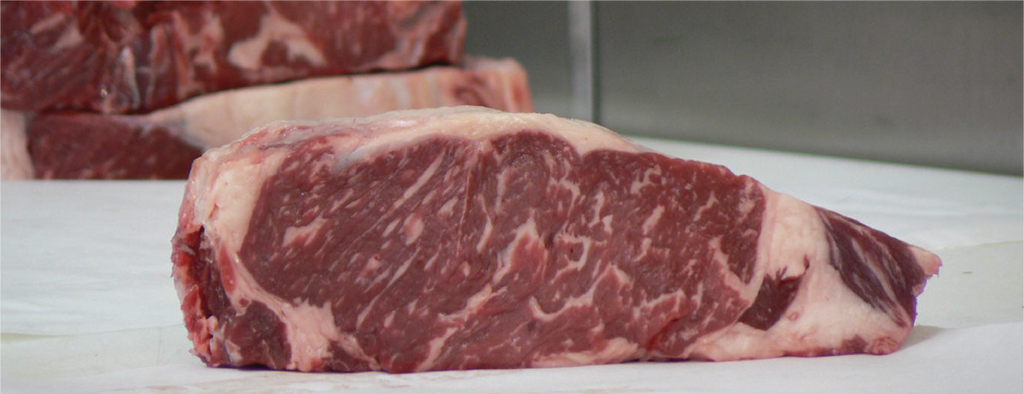
The Carnivore Diet
There's been a lot of talk about the carnivore diet lately, so the team at Playon Products has decided to do some research. What is the carnivore diet? What are the benefits? Are there any downsides? And most importantly what are the results?
The carnivore diet consists of animal products only. It is completely plant free and in its purest form, includes only meat, salt and water. The carnivore diets adherents believe that animal products provide the body with everything that it needs and can help you to cut weight and build muscle. One of its fiercest supporters is Dr Shawn Baker, a trained orthopaedic surgeon and bodybuilder who is nicknamed the carnivore king. With credentials like that it’s hard not to be at least a little curious.
What is the carnivore diet?
The carnivore diet at its heart is a restrictive zero carb diet that is designed to train the body to run on fat rather than carbs. The diet stems from a belief that our ancestors ate mostly meat and fish as they did not have access to modern form of carbs like cereals, pastas and breads and that these modern carbs are in fact to blame for the modern worlds high rates of chronic diseases.
Many people who try out the carnivore diet have already tried keto diets and have not been satisfied with the results. This can be due to having health issues that keto did not completely fix or it can be due to not losing weight or gaining muscle in the way that they had hoped.
“By and large, most people doing the carnivore diet have some persistent health issue that the keto diet did not completely fix, such as not enough weight loss, a mental health condition, an autoimmune condition, or uncontrolled cravings,” says Dr. Paul Mabry.
What can I eat?
So, what can you eat on the carnivore diet? Well it’s simple, animal products only! Fatty cuts of meat are encouraged by people following the diet as it’s the easiest way to reach your daily energy needs.
Foods that Carnivore Dieters eat include:
- Meat: beef, chicken, turkey, organ meats, lamb, pork, etc.
- Fish: salmon, mackerel, sardines, crab, lobster, tilapia, herring, etc.
- Other animal products: eggs, lard, bone marrow, bone broth, etc.
- Water
- Salt, pepper, and seasonings with no carbs are allowed.
Some people also eat dairy products such as yogurt, milk and cheese, however since these foods contain carbs, the more serious carnivore dieters will avoid them. As for drinking carnivores will drink water and bone broth but tend avoid sugary or plant based drinks such as soft drinks, tea and coffee. There are no counting calories and dieters are encouraged to simply eat as often as they like and until they feel satiated.
All other foods are restricted, these include:
- Vegetables
- Fruits
- High-lactose dairy
- Legumes
- Nuts and seeds
- Grains
- Alcohol
- Sugars
- Beverages other than water
This sounds very restrictive, and it is, but a lot of carnivores in fact do include some of these foods in their diets. Shawn Baker himself has said during a podcast that it is best to find what works for you. First cut out all foods that are plant based for a month and then slowly reintroduce other foods such as berries and see what effect it has on your body.
Benefits
Many carnivores tout the benefits of the carnivore lifestyle, many people lose weight and others find that ailments they have had for a lifetime simply disappear. This almost sounds too good to be true but after searching through forum after forum and having a look through the very active Facebook groups and pages it does seem to be the consensus. Many carnivores say things like it reduces inflammation and blood pressure whilst also increasing mental clarity and libido. Shawn Baker has said “My joint pain and tendinitis went away, my sleep became excellent, my skin improved. I no longer had any bloating, cramping or other digestive problems, my libido went back to what it was in my 20s and my blood pressure normalised,”.
Dr Mabry was a sugar addict before he tried out keto, he found some success with diet but was disappointed when his weight loss plateaued at around 230 pounds, this was 50 pounds above the weight he was aiming for and he also suffered from hand eczema. In 2015 he started the carnivore diet and miraculously his eczema has disappeared, and he maintains his weight at 180 pounds. There are many more stories like this, far too many to list here.
Unfortunately, there has not been much study done on the carnivore diet and all these anecdotes don't amount to proper scientific research. Dr Mabry himself has said “I don’t think everyone needs to eat a zero-carb diet. But if you are like me, someone who is severely metabolically damaged from a lifetime of sugar addiction, I think it can help,”
Downsides
As we've just learnt there hasn't been any research on the carnivore diet. So the only way to talk about downsides are as a potential downside and the largest potential downside of this diet is nutrient deficiencies. There are four micronutrients that are difficult to obtain whilst on a carnivore diet. These are Vitamin C, Vitamin E and if dairy is not included, Calcium and Vitamin K2. If you take out organ meats, which some people do not enjoy than it will also be very difficult to obtain Vitamin A, Folate, Manganese and Magnesium. All in all there is not enough data to draw any conclusions involving the risk of nutrient deficiencies.
It is possible that an all meat diet might impact hormones, thyroid function and fertility. There is some evidence that carbohydrates can support thyroid function. Many traditional cultures that did not have much plant based food in their diet actually ate the thyroid glands of other animals to support fertility. https://healthwyze.org/archive/nutrition_and_physical_degeneration_doctor_weston_a_price.pdf Again there are no long term studies on the carnivore diet so it impossible to draw conclusions from this but we would be remiss not to include this information, the more you know!
Results
Just going through the Instagram feeds of carnivore dieters it is clear to see that people are achieving some fantastic results. Massive gains in muscle and losses in fat are not uncommon to see. There are people that say they have gotten rid of several ailments, eczema, IBS and polyps are all common ones that pop up consistently. Again, the lack of research data is a problem when trying to draw any conclusions but going off anecdotal information the carnivore diet does seem like it working for a lot of people. At this point in time it seems like the best way to find about the diet is to give it a go yourself. Let us know if you are currently observing the diet or planning to and share your experiences!
